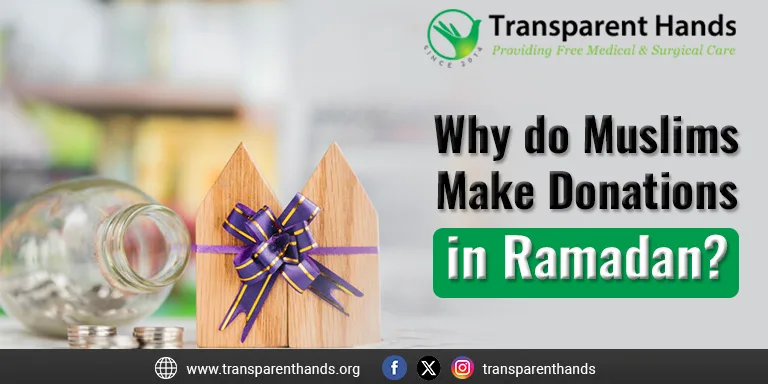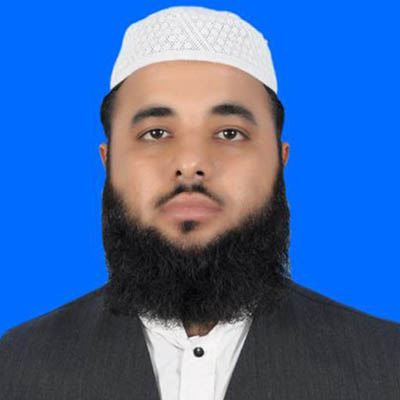Why do Muslims Make Donations in Ramadan?

A large number of Muslims give Zakat and Sadaqah during Ramadan. Zakat is a central tenant of Islam. It is considered the third pillar and an annual obligation for all Muslims who qualify for it. Sadaqa is a voluntary charity that Muslims are encouraged to practice. According to a PEW study, most Muslims prefer to give their Zakat donations during Ramadan. Why do Muslims make donations during Ramadan? We will address that question in this article.
The Significance of Ramadan in the Muslim World
During Ramadan, Muslims fast from dawn to dusk, during which they aren’t allowed to eat, drink, or get involved in any immoral activities. Fasting isn’t only about staying hungry or thirsty. The true purpose of fasting is a permanent and lasting change in a person’s behavior.
The Prophet (ﷺ) said, “Whoever does not give up false statements (i.e., telling lies), and evil deeds, and speaking bad words to others, Allah is not in need of his (fasting) leaving his food and drink.” (Sahih al-Bukhari, 6057)
One of the most fundamental requirements of fasting is maintaining ethical behavior. Islamic ethics is rooted in the idea that every person has two types of responsibilities: Huqooq ul Ibad and Haqooq ul Allah. While the former focuses on a person’s relationship with other human beings, the latter duties promote a deeper spiritual connection with Allah (SWT).
Mark Your Ramadan Calendar to Making a Lasting Impact
The Pursuit of Moderation
Haqooq ul Ibad and Haqooq ul Allah complement each other. Believers cannot ignore either set of responsibilities, and Islam always promotes moderation in actions.
“The deeds of anyone of you will not save you (from the (Hell) Fire).” They said, “Even you (will not be saved by your deeds), O Allah’s Messenger (ﷺ)?” He said, “No, even I (will not be saved) unless and until Allah bestows His Mercy on me. Therefore, do good deeds properly, sincerely and moderately, and worship Allah in the forenoon and in the afternoon and during a part of the night, and always adopt a middle, moderate, regular course whereby you will reach your target (Paradise).” (Sahih al-Bukhari, 6463)
Ramadan presents the perfect opportunity to practice Huqooq ul Ibad and Haqooq ul Allah. While fasting and praying are fundamental ritualistic duties, Muslims are also cognizant of Haqooq ul Ibad. Thus, their charitable actions express devotion to Allah (SWT) and fulfill their duties toward fellow human beings. Thus, there is a positive correlation between fasting and giving charity, and both go hand in hand.
The Great Rewards of Laylatul Qadr:
One of the most important features of Ramadan is Laylatul Qadr, which is defined by the Quran as follows:
“The Night of Decree is better than a thousand months.” (Surat Al-Qadr, 97:3)
According to the Quranic verse, any act of devotion done on the night of Laylatul Qadr is as if the act is repeated for a thousand months.
Laylatyl Qadr offers a great opportunity for Muslims to receive great spiritual rewards for their noble deeds.
The Prophet said (ﷺ), “Whoever prayed at night in it (the month of Ramadan) out of sincere Faith and hoping for a reward from Allah, then all his previous sins will be forgiven.” (Sahih al-Bukhari, 2008)
While Laylatul Qadr offers great rewards, no one can be sure about its occurrence. Some hadiths confirm that the Laylatul Qadr lies in the last Ashra of Ramadan.
Narrated `Aisha: Allah’s Messenger (ﷺ) said, “Search for the Night of Qadr in the odd nights of the last ten days of Ramadan.” (Sahih al-Bukhari, 2017)
Supporting the Community:
Ramadan is the perfect time to help deserving people and to support the community so that they can also benefit from the great spiritual rewards Allah (SWT) promised during Ramadan.
The Quran urges believers to spend their wealth in Allah’s (SWT) way:
“Those who spend their wealth [in Allah ‘s way] by night and by day, secretly and publicly – they will have their reward with their Lord. And no fear will there be concerning them, nor will they grieve. “ (Surat Al-Baqarah, 2:274)
Ramadan culminates in Eid al Fitr. One of the reasons why Muslims make donations in Ramadan is to help deserving people become part of the Eid festivities.
Messenger of Allah (ﷺ) said, “A Muslim is a brother of (another) Muslim, he neither wrongs him nor does hand him over to one who does him wrong. If anyone fulfills his brother’s needs, Allah will fulfill his needs; if one relieves a Muslim of his troubles, Allah will relieve his troubles on the Day of Resurrection; and if anyone covers up a Muslim (his sins), Allah will cover him up (his sins) on the Resurrection Day”. [Al-Bukhari and Muslim]. (Riyad as-Salihin, 244)
In another Hadith, Muslims are urged to be kind to each other:
“None of you believes until he loves for his brother what he loves for himself.” (Jami` at-Tirmidhi, 2515)
Use Our Online Zakat Calculator Now
About Transparent Hands:
Transparent Hands offers free medical and surgical care to Pakistan’s most deserving patients. In addition to organizing free medical camps and preventive healthcare sessions, we also provide free surgeries and procedures. Through our secure and convenient online donation methods, people can give Zakat, Sadaqah, and other types of donations from anywhere in the world. Our unique crowdfunding platform ensures you know who you’re helping and how your contributions impact lives.
In the Quran, Allah (SWT) tells us:
“O mankind, there has to come to you instruction from your Lord and healing for what is in the breasts and guidance and mercy for the believers.” (Surat Yūnus, 10:57)
Allah (SWT) asks us to be merciful and charitable. Your empathy can heal many families awaiting a new beginning. Donate now.
Conclusion:
Ramadan is very important to Muslims. During the holy month, many Muslims strive for spiritual growth and try to fulfill their communal responsibilities. By giving Zakat and Sadaqa, believers strengthen their relationship with Allah (SWT) and actively contribute to the well-being of deserving people. Ramadan presents a great opportunity for Muslims to practice Huqooq ul Ibad and Huqooq ul Allah. The opportunity to seek immense rewards, particularly during Laylatul Qadr, also motivates Muslims to act with sincerity and compassion. Ultimately, these charitable deeds reinforce the bonds of brotherhood and ensure that those in need can also participate in the joy of Eid ul Fitr, promoting inclusivity. Transparent Hands provides medical treatment to deserving patients in Pakistan. Let’s come together to support this noble cause and make a difference in the lives of many.











Leave Your Comments